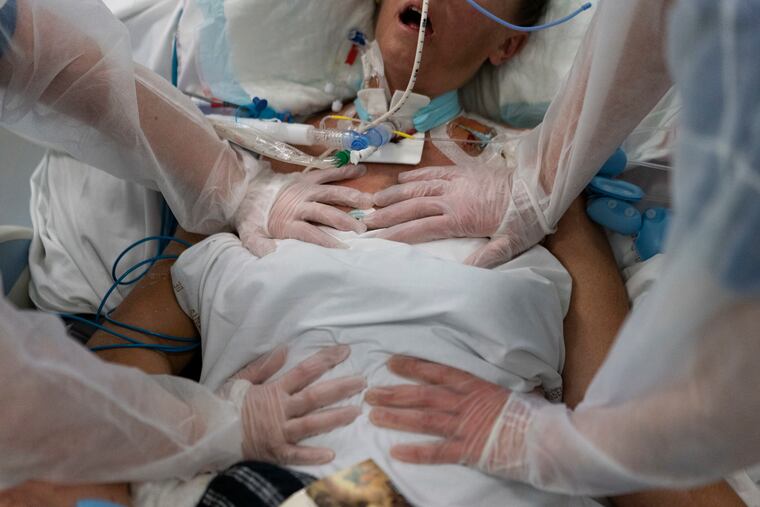Finding compassion through fewer words and more presence
In medicine, we encounter scenarios where it is no longer the goal to offer a physical remedy. Sometimes, we can only honor the patient’s dying process with dignity.

One evening, by the time I arrived in the ICU for the night shift, one of our patients was nearing her death.
Her medical team and family had already agreed that there were no options left. Going into the evening, our goal was to make sure she was comfortable during the last moments of her life.
When I walked in the room to introduce myself to the family, I was nearly overwhelmed by their sorrow. Some of them had just arrived after driving for several hours.
The circumstances were unfamiliar to me. My job normally involves finding the diagnosis, explaining what is going on in the patient’s body, and offering the appropriate treatment options.
But I was meeting them for the first time as their loved one’s health care provider, seemingly unable to provide anything, or so it felt to me initially. I so deeply wanted to be able to alleviate their sadness with treatment options and hope. I so deeply wanted to fill the heavy silence with scientific explanations. But there was nothing left that needed to be addressed in those ways.
Still, there was much I could do for them as a human being. I told them that I was sorry for their loss. Without any other words, I stood by the patient’s side and gently placed my hand on her foot. The grieving circle grew tighter.
In medicine, we encounter scenarios when it is no longer the goal to offer a physical remedy. Sometimes, we can only honor the patient’s dying process with dignity.
When I first started training, I had imagined that it would become easier to handle these circumstances because I would have more things I could say as my knowledge base and experience grew.
However, I have come to see that what we need at times are fewer words, and more presence.
Experience has taught me that, in these moments, what patients and families need are not more facts. When dealing with extreme sadness, we often find ourselves stunned and lost, entirely unable to process more facts.
Instead, what people need is something much simpler, yet so much more difficult to express: a genuine acknowledgement of their suffering, a compassionate silence, a human connection. A plain, honest and sincere statement of the truth.
Telling someone that you are sorry for their loss or that you acknowledge their pain is one of the most difficult things to do sincerely. We have to turn off the cognitive and reach into the emotional realm. We have to confront our discomfort with having no solution or action. We must resist the urge to say we know what they are going through. Only they know that.
Now, when I encounter these moments, I always lead with silence. I tell the patient and the family that I am deeply sorry in the sincerest way I know, and wait to see what they need. The silence is heavy and uncomfortable, but I know more words are not the answer.
Jason Han is a cardiac surgery resident at a Philadelphia hospital and contributor to The Inquirer’s Health section.